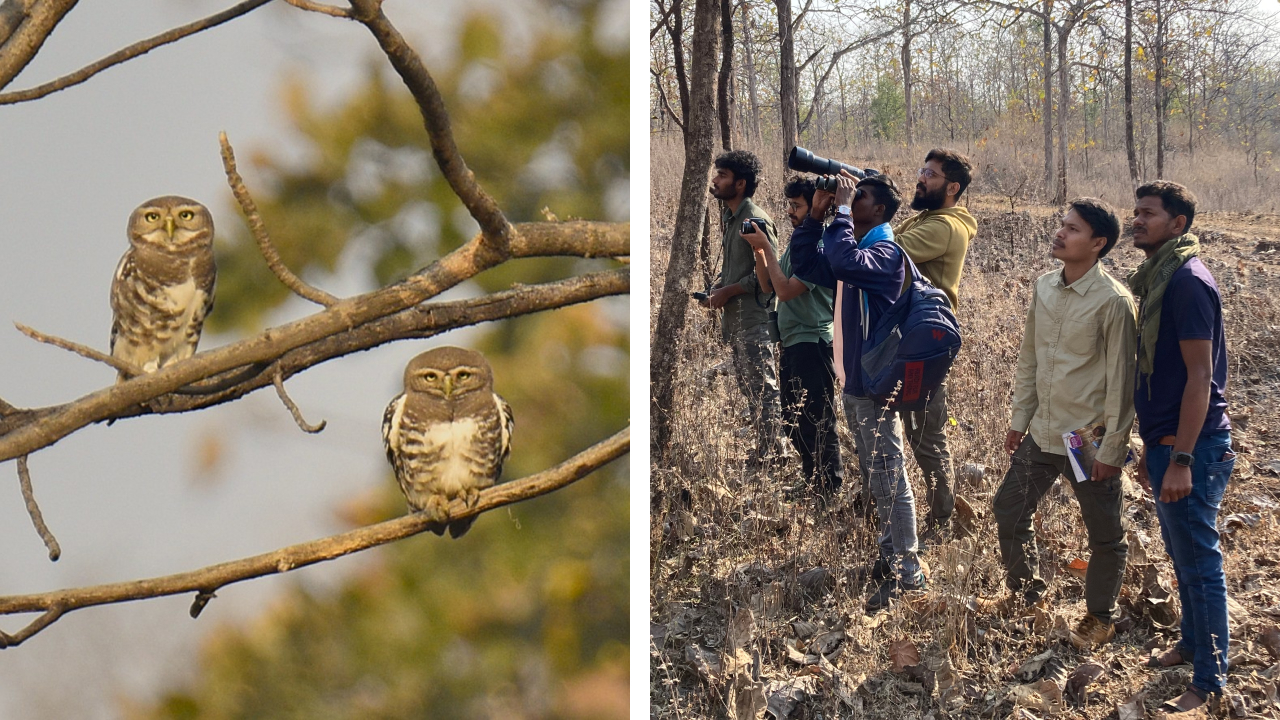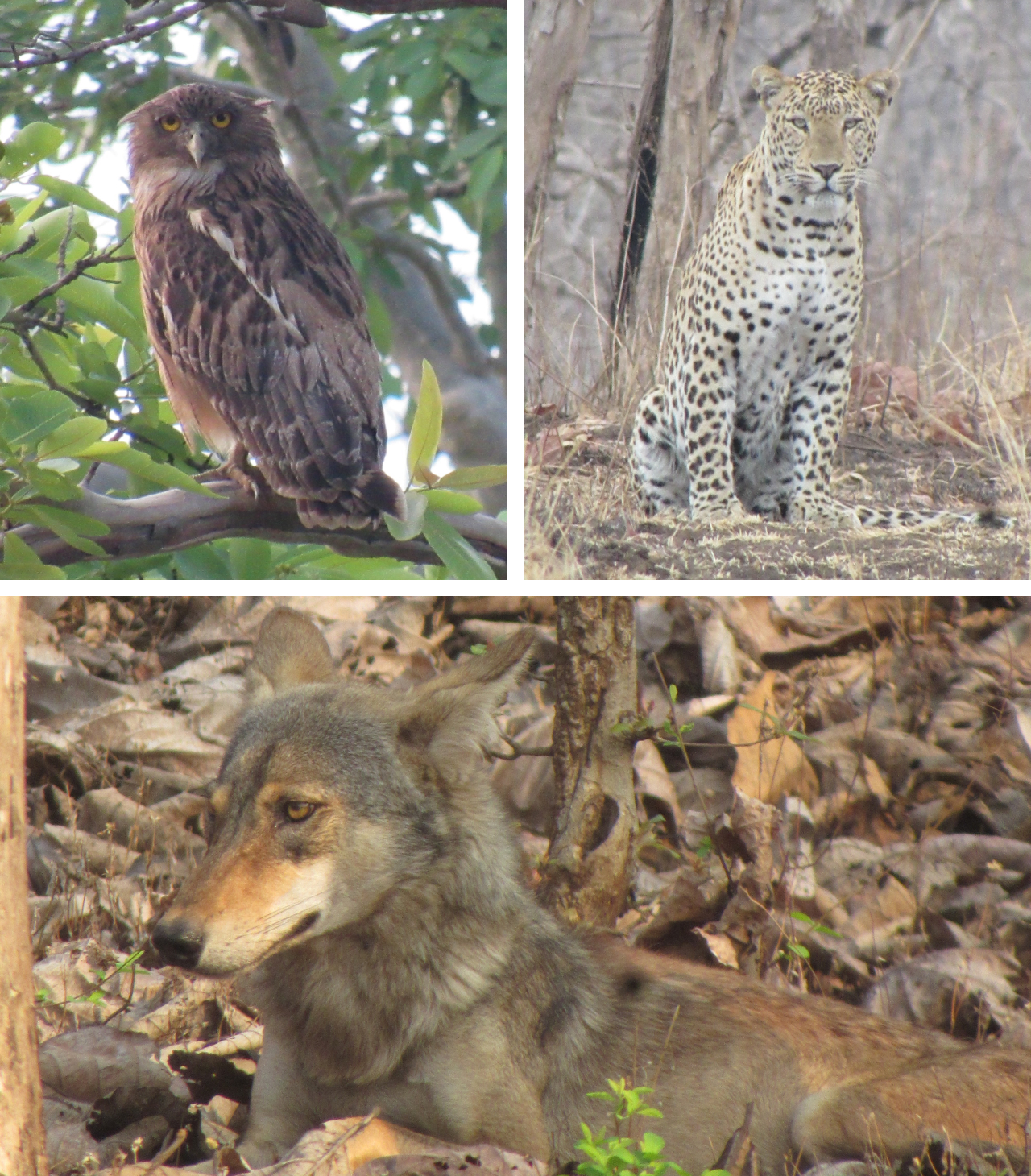
Prachi Mehta
Uncovering the Secrets of the Forest Owlet in India
The EDGE Metric (Evolutionarily Distinct and Globally Endangered) helps scientists identify the highest priority species for conservation investment by combining how unique they are on the tree of life with how threatened they are. (You can dive deeper into this tool here.) According to recent EDGE analyses, the Forest Owlet ranks among the top 10 highest priority raptor species worldwide for conservation action.
The Forest Owlet (pictured in header image above and at left below) is a diurnal, Endangered owl species, restricted to small, fragmented forests of Central India. Despite its status, little is known about its population size and exact distribution, making ongoing research essential.
We recently established a strong partnership with the Wildlife Research and Conservation Society (WRCS) India to estimate the population size and status of the Forest Owlet. Since January 2025, WRCS field teams have been conducting systematic surveys across Maharashtra, western India (pictured at right above). In the first six months, the team has surveyed extensive areas across Maharashtra and detected Forest Owlets in several of the survey sites. These efforts will continue, with data analysis to follow, ultimately providing an updated population estimate and refined knowledge of its habitat requirements.
"The Forest Owlet is one of India's most elusive owls, with a restricted distribution, making it crucial to understand its population size and locations,” says WRCS Senior Scientist and Director Dr. Prachi Mehta. “We partnered with The Peregrine Fund on this important project to generate an estimate of the Forest Owlet population from its known sites, an endeavor that has not been attempted before. Thanks to TPF's sound technical support, our team successfully conducted the survey even under challenging field conditions. We anticipate that the final count from this survey will provide invaluable and rewarding insights into the Forest Owlet population."
Beyond owlets, the surveys have also revealed an incredible diversity of wildlife. Notable sightings include tiger, leopard (pictured above at top right), jungle cat, sloth bear, golden jackal, dhole, Indian grey wolf (pictured above at bottom), four-horned antelope, Brown Fish-owl (pictured above at top left), and Mottled Wood-owl. These observations indicate that by protecting raptor habitat, we help protect entire ecosystems.







